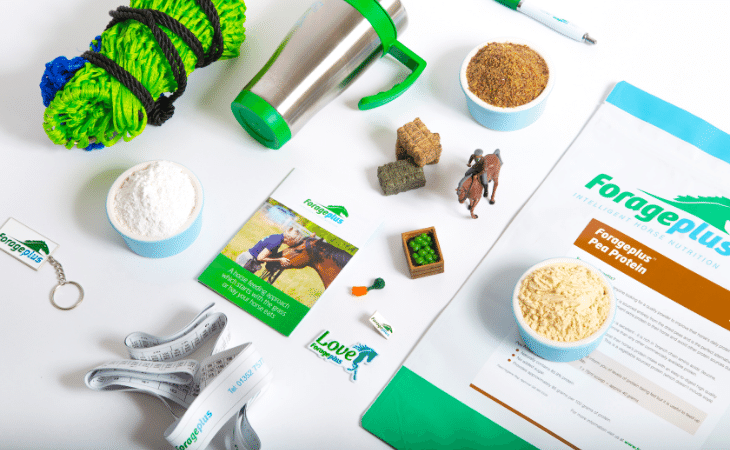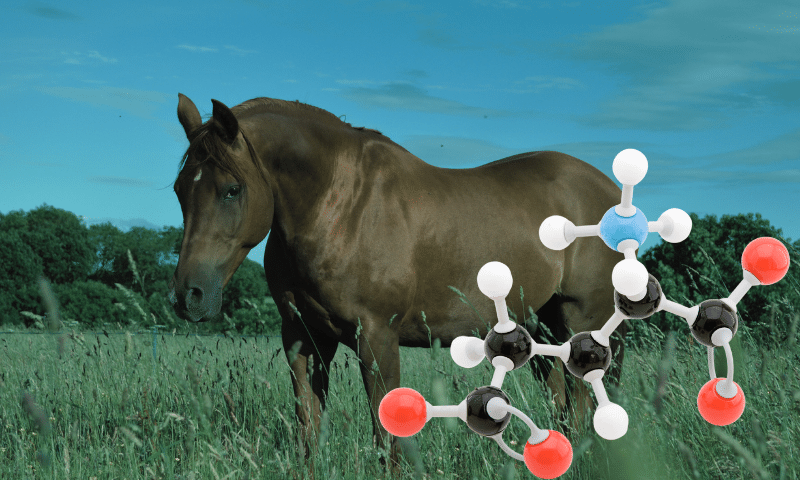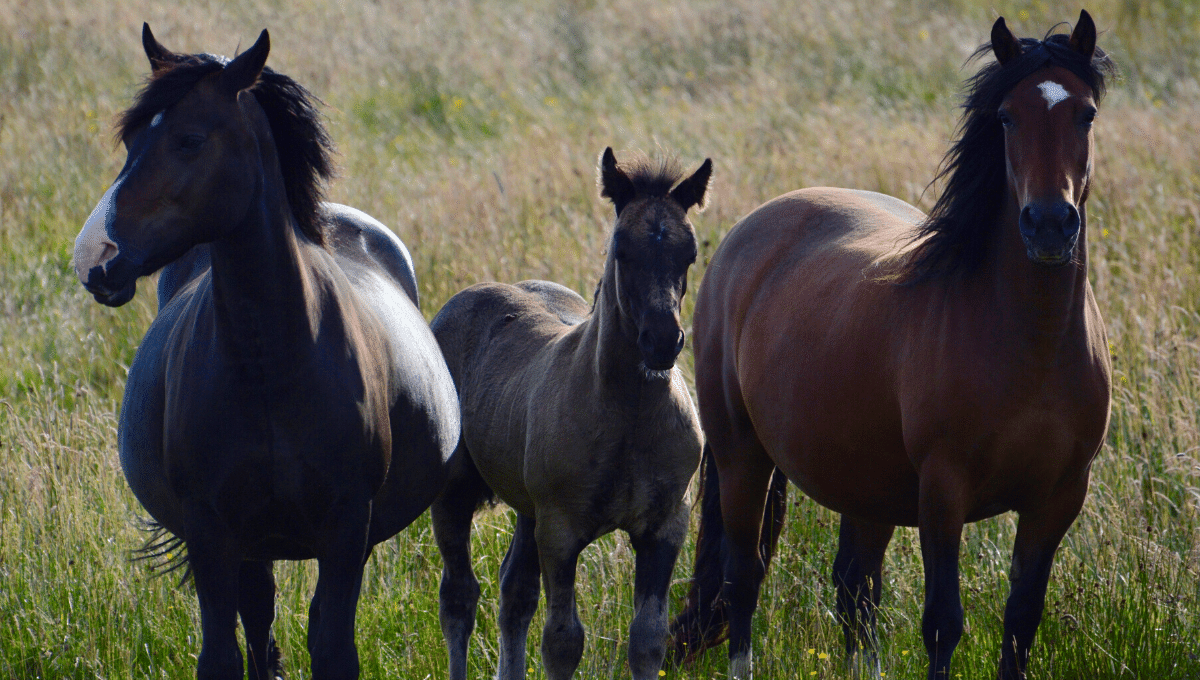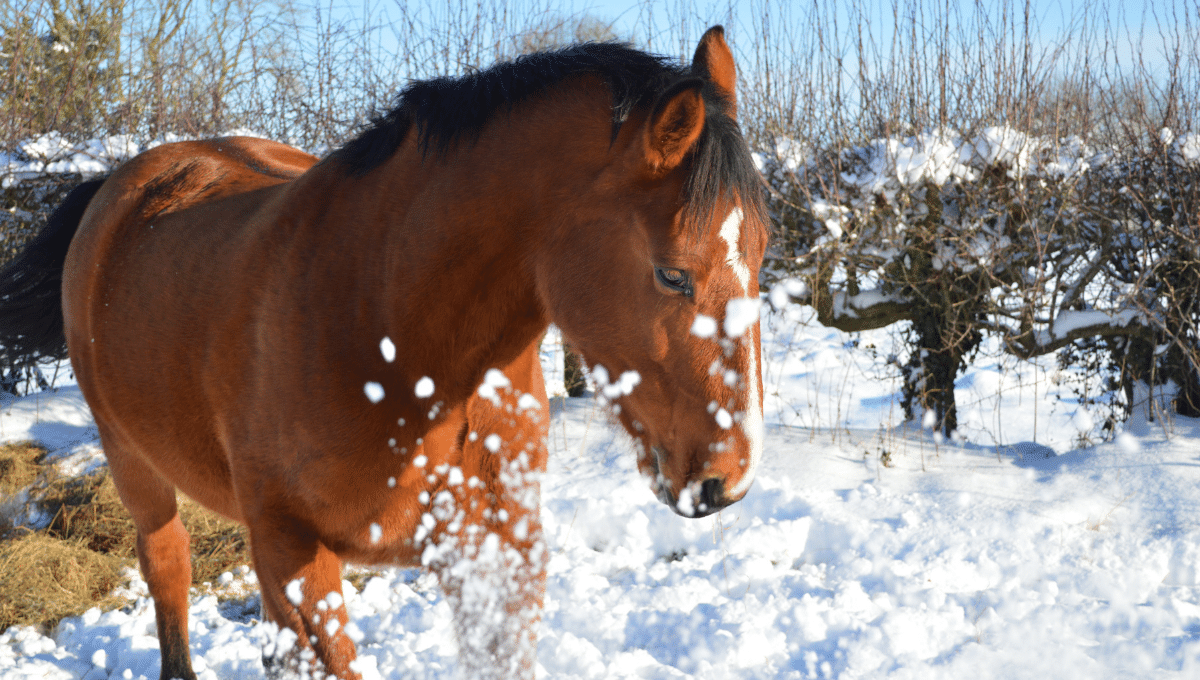Do you understand protein and amino acids for horses? This short article helps you understand what protein is and what amino acids your horse needs for whole horse health.
Proteins are literally life and are possibly the most important substances in the body. Protein is the building block for life, and when new tissues are made or repaired, protein is needed. Proteins are composed of units called amino acids. Protein is ingested and then broken down into individual amino acids and used to build muscle and bone, blood components, enzymes that catalyze biochemical reactions, hormones, peptides, and antibodies.
Horse owners know protein is important but it is the available amino acids that are the crucial part of protein knowledge that is often misunderstood. Crude protein in horse feed does not necessarily supply all the amino acids the horse needs. Meeting a protein requirement does not mean just supplying a certain amount of crude protein; it means ensuring levels of specific amino acids as well.
Amino acids for horses – how many do they need?
There are twenty different amino acids needed for protein synthesis. Synthesis just means breaking down the protein into individual units – think of taking the beads of a necklace to pieces. The body takes the protein necklace to pieces and uses the amino acids contained in the necklace to build new amino acids and also to build new proteins.
Some amino acids can be made by the tissues of the body. However, ten of these amino acids, known as essential amino acids, can only be supplied to the horse through dietary sources. These are arginine, histidine, isoleucine, leucine, lysine, methionine, phenylalanine, threonine, tryptophan, and valine.
Lysine, followed by methionine and threonine are the essential amino acids in most demand during protein synthesis in the horse. In general, lysine is the only amino acid in short supply in a forage-based diet.
Lysine enhances growth and nitrogen balance; promotes bone growth in foals; and stimulates gastric juices. It is the amino acid that is often in the shortest supply in forage so it makes sense to supplement for insurance. It is particularly important for horses in heavy work, pregnant and lactating mares and growing youngsters.
It is important to make sure enough lysine and the other essential amino acids are contained in the diet in sufficient quantity because without one essential amino acid the protein necklace may not be able to be rebuilt to make the required protein for different jobs in the body.
This can lead to poor quality growth and developmental disease in growing horses or poor muscle condition and possibly breakdown in working horses.

What you need to worry about is that lysine is the most important amino acid to supplement. However, our latest research and statistical data gathered from our many forage samples suggest that other essential amino acids can be short.
A low crude protein level in forage can be further compromised by an incorrect ratio of nitrogen to sulphur where insufficient sulphur results in poor conversion of nitrogen to protein. This poor conversion results in incomplete amino acid formation where some amino acids, particularly methionine will be partly formed and therefore unavailable to the horse.
It makes sense then to supplement protein not just when you have low crude protein but also when you might have nitrogen conversion problems. Ensuring sulphur levels in the soil are optimum will correct this problem however sulphur is infrequently applied to the soil.
Where you have a horse with poor hoof quality increased availability of methionine has been shown to be beneficial. If your horse has muscling issues even though you are working it correctly then maybe the addition of extra protein in the diet will help.
You can do this by feeding high protein feeds like alfalfa but we prefer the addition of either whey protein, pea protein or essential amino acids so that mineral balance and calories are not upset. In addition, the inclusion of glutamine can help gastric issues and leucine and the branch chain amino acids are useful for horses in heavy work. There is also some evidence to suggest that arginine can help long-term laminitics during cold snaps.
Watch out for our update on the information we have been researching on protein in forage and protein availability by liking our Facebook page.
Take a look at our other articles on horse protein and amino acids here

Amino Acids | Proteins
Explore our premium amino acid & protein supplements to support health, muscle growth, and performance in all horses. From lysine to whey and organic pea protein, our products are ideal for young horses, breeding mares, and those in work or building topline. Ensure your horse gets the best nutrition with our expertly crafted solutions.






